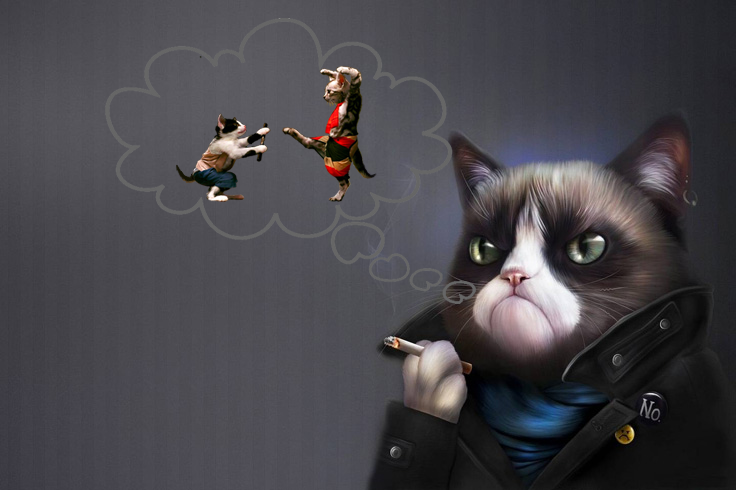Things to Consider
|
|
|
When we think about judgments, we often think about them in terms of negative judgments about someone or even positive ones. There are of course, judgments for fine-tuning something, judgments of the court, “Judgment Day”, etc. All of these use a single foundation: “This Not That”. Although we may at times think of judgments as being “for” something, that something is always the opposite of something else. It is worth noting that, integral to that mental process, is judging against something or someone…always. That we tend to focus on our goal of using judgment to make things better notwithstanding, we spend much of our time mentally “judging against”.
A lot of this mental process is automated, and its criteria arbitrary. Since we base our judgment decisions on predetermined criteria of right and wrong, better and worse, etc., we take it for granted that our judgments are sound and founded in something fairly solid. And from a human viewpoint (or at least some of them), we might be correct. We usually give little or no thought to the variable aspect of our judgment criteria over time. The way we view things today, very likely is not the same as how we viewed them years ago, if indeed we thought about them at all. People a generation or two, or perhaps a century or two ago, would have thought about them even more differently.
Whether in the heat of a quick and sudden judgment, or in the overall trend of judgment over time, our judgments and our criteria for them change. Our views change in terms of individual views, of national or local collective views, and of the average global community views. We might find it difficult to come up with an accurate description of such views, because they vary from person to person and group to group. Nevertheless, it is clear that these do change. So today’s views of “this not that” may be far afield from what yesterday’s views of “this not that” were, whether it be social mores, science, religion or personal relationships and their guiding criteria.
As long as we live in the world perceived as in motion through time, judgments and the choices involved in their formation will continue, and be unavoidable. Since criteria and judgments change, and since both individual and global quality of life depend on the choices made, it makes sense to give some attention to discovering better criteria for making better and more lastingly beneficial choices.
The short answer is relaxing our tight grip on the beliefs we hold dear, along with making our minds more open to allowing change. The next question then, is of course, to just what should we open our minds? We always want to answer such a question, but unfortunately we tend to accept only answers that fit the beliefs we already hold dear. Additionally, we believe that, in order for the answer to a question of such importance to have value, it must first be clearly defined. Why? Because without intellectually graspable definition, we can’t compare and contrast it to what we already believe. Another way of saying that is that we do not want to relinquish our hold on the beliefs we have, because we view them as supporting not only our quality of life, but our survival as well. Although there is some truth to that view of our beliefs, it is also true that those same beliefs are part of a global matrix of beliefs, swirling in the minds of all, and the judgment-based behaviors of those beliefs bring not only quality of life and some degree of survival, but also disparity, poverty, sickness, pain, untimely death, war and many other things.
Consider that, although our beliefs and their underlying criteria change, and although the world around us changes…there is reality within and around us that does not change. Everything we see, from stars and planets to animals and people, to molecules and subatomic particles…changes. But these all effect their apparent change within a steady framework so to speak. Things that change sometimes spiral out of control. Relationships may explode, planets may collide, or the stock market may fail to behave as expected. But what of this non-changing reality? We don’t see it…we see people, rocks and things. Although that seems to be the case, we actually do see reality…and it is the people, rocks and things that we do not see, but instead perceive. What we “see” is whatever it is that is real and is actually there (regardless of our perceptions), and in this case, “real” means that which is faithful to our vision because it never changes. We are so accustomed to perceiving people, rocks and things, that we don’t often notice reality. Our memorized belief system tells us that, “real” is whatever presents itself to us as images our eyes can feast upon, our ears can relish, and our hands can touch, kick a tire here and there, and by these presents, “determine” the reality of them.
Another way of saying that is that we use judgment to determine a belief about what is real, substituting that belief and its supporting perceptual evidence for actually seeing the only reality there is, which reality requires no such judgments nor any determining. So today, we believe in a particular relationship perhaps, or in our job, or in the security found within our nation, and so on. If all of these fail us at some point (as they have for many people time and time again), just what is real, true and faithful about these beliefs we've held dear? Will what we believe in change and vanish into thin air? If it does, or if it could do that…is it real? We watch a movie, and for that moment in time, we view it as somewhat real, even though we know it is not. When the movie is over, we get up and go about our lives, giving the movie much less thought…because now we’re really walking around in and viewing reality, right? But if that movie also ends, if we survived the drastic change at all, we’re totally devastated. "How could my reality treat me this way?" Well, your reality didn’t treat you that way. Instead, the views and beliefs you hung all your hope on and believed in, and called reality, treated you that way...because belief, by its very design and nature, is conflicted. You don’t have to wait for a devastating national upheaval however, or for a significant other to abscond. Just look around you and see that this is happening to people every day, all the time. People are having to face the temporary nature of what they’ve believed in as their reality. In our daily lives, usually, a rock is still “just a rock”, but when the rock is a volcanic bomb dropping on us rather than the quiet rock in our garden, or when it is wrapped in nuée ardente, destroying everything in its path, there is little time for considering our belief system, nevertheless some ideas about what is real.
Our perceived world brings us appearances within the contexts of our judgments. I suppose it would be radical to say that absolutely everything we perceive is coming along because of our judgments. Less radical however, is saying that our judgments to some extent become determiners of our quality of life, individually and collectively. This is so, not simply because we made the right or wrong choices, but because of the level of conflictedness upon which those choices were founded. If our collective thoughts were consistently different (more influenced by reality), if our collective attitudes were consistently different, our collective behaviors would be consistently different. And more importantly, they would be chosen within a context more in touch with reality, and thus less exacerbated in the conflict aspects of the choices (somewhat regardless of what the choices were). It comes down then, to whatever is behind or is driving that which begins the cascading of thoughts, attitudes and behaviors, causing them to come along, impacting our lives.
Naturally, reality is all there is. But we experience our lives as living in a world moving in motion through time that is changing every second. Every change impacts us, and from our point of view, either impacts us positively or negatively…or perhaps a mixture of both. I’d like to revisit something I said earlier. Our attention is largely upon the people, rocks and things around us…things we perceive. Very little of our attention is consciously upon our reality in a regular way. Since reality is not the product of our determination-oriented judgments, and is constant, attention to it pours its consistency into the mix, along with our ruminated thoughts and belief system regurgitation. Our habitual tendency to memorize everything in order to prepare us for the future, then memorizes thoughts influenced by the gentle presence of reality (more poignantly noticed) in our mind’s attention. The beliefs and attitudes already stored in our memory banks and structured as our belief system, must move aside a little, giving room for these fresher, influenced thoughts, feelings, beliefs and behaviors on a regular basis.
That which does not change, is peace. It is not merely peaceful (a temporary notion), but is the reality called “peace” itself. So this is a worthwhile influence to inject into the mind. All judgments are against something or someone, rather than being just for anything or anyone. Peace however, is impartial and is neither for nor against anything. It just is what it is. Be glad that this is so, for its whole faithfulness is "certainty" as the only legitimate hope in which mankind may rightly be confident, for it is the very source of any lasting peace and salvation. We need judgments regularly to operate in this perceived world. Still, we can bring attention to bear on that which is true and faithful, and inject its influence into the mix...not by choosing to "do" this, but by becoming willing to stop choosing against it by giving attention to it instead.
Judgment is arbitrary, changing with each situation and piece of information. Reality is what ultimate judgment would be if it were possible. Unchanging reality forever is the final judgment...or the truth of reality seen once all denial is let go...once the vexation that creates perception and its senses ceases from distracting the mind into pseudo-attention. Nothing is needed or possible to complete reality or to improve or increase it. Nothing can enter into it creating conflict because there is nothing other than reality. Our created world does not literally exist.
bottom

